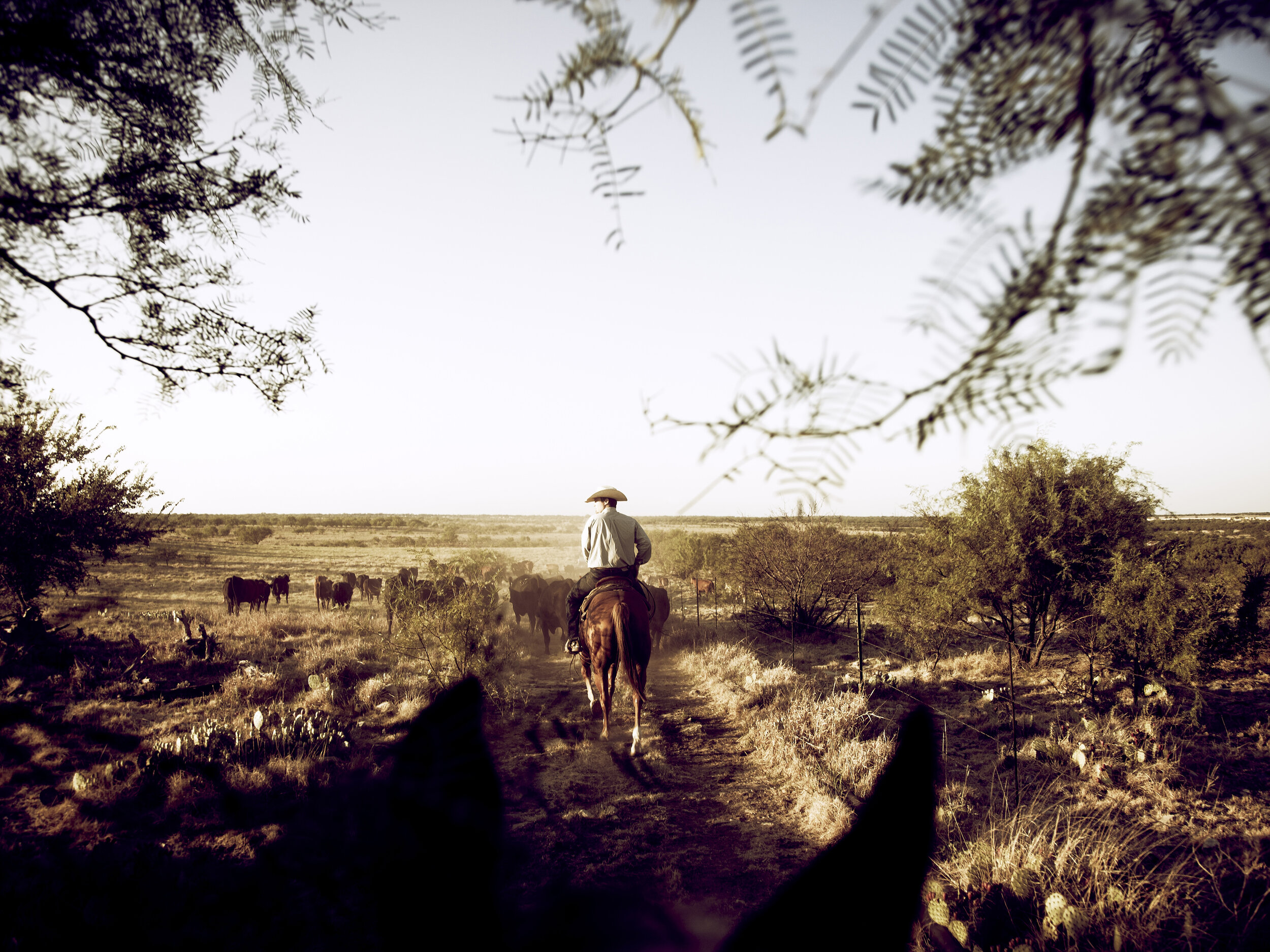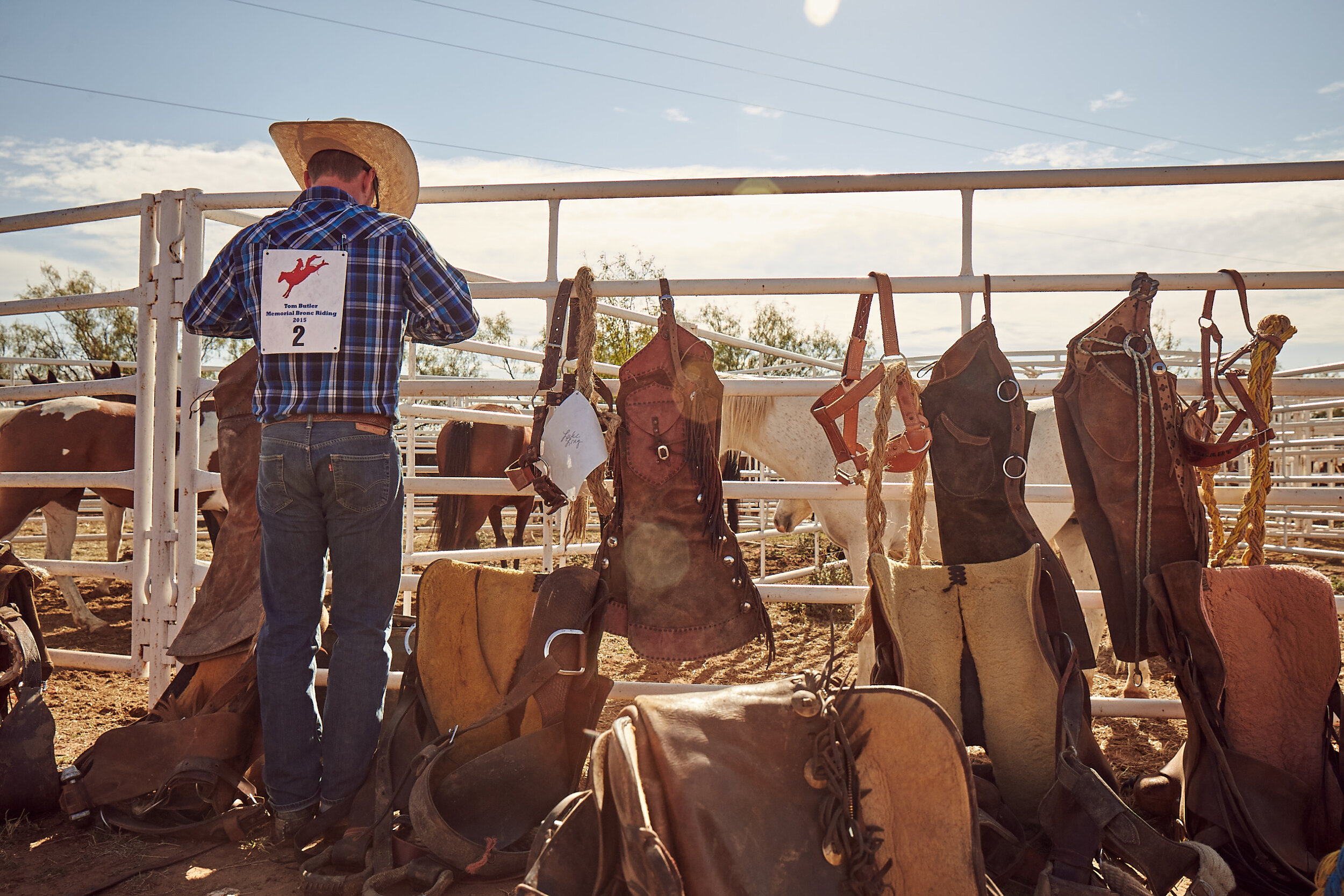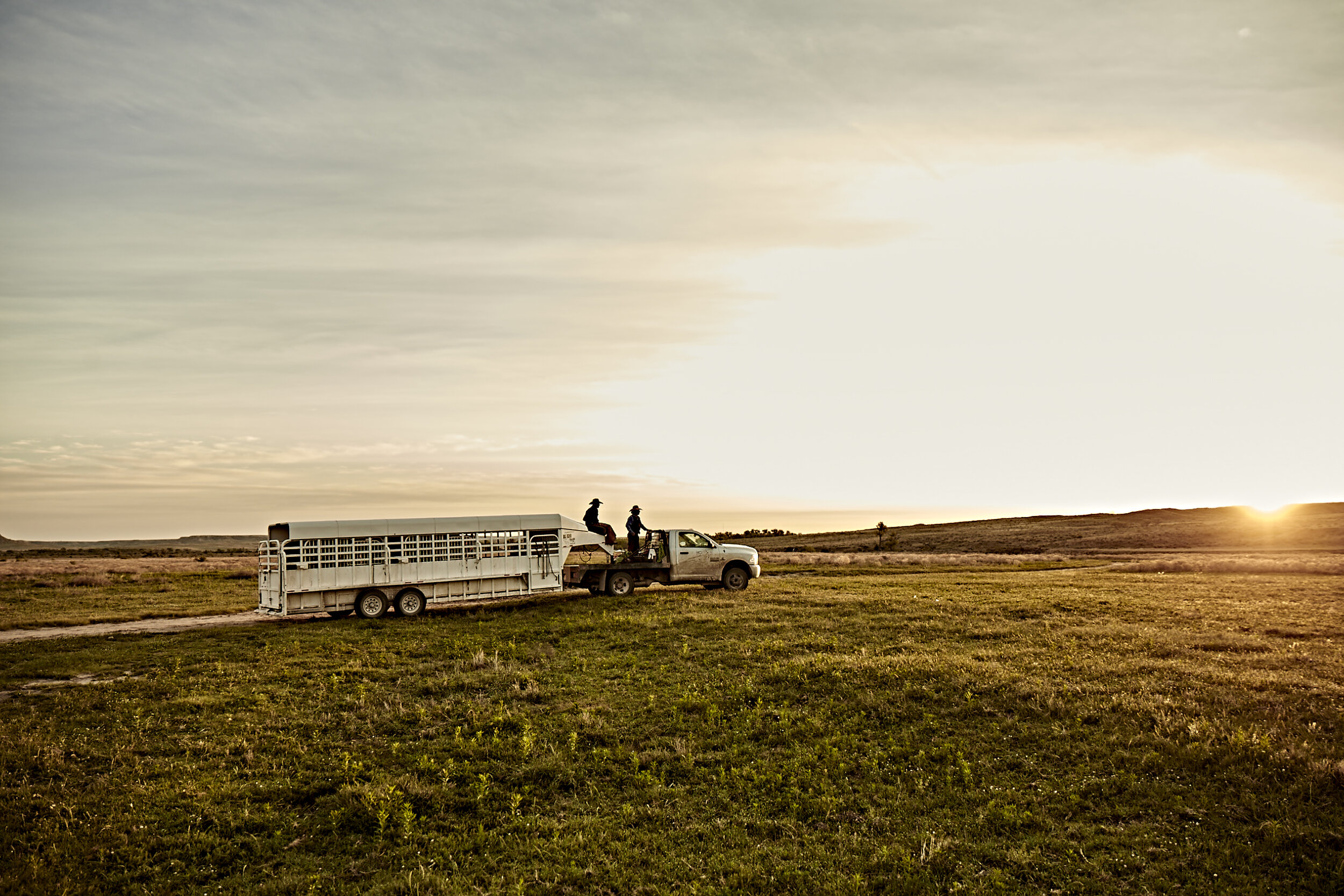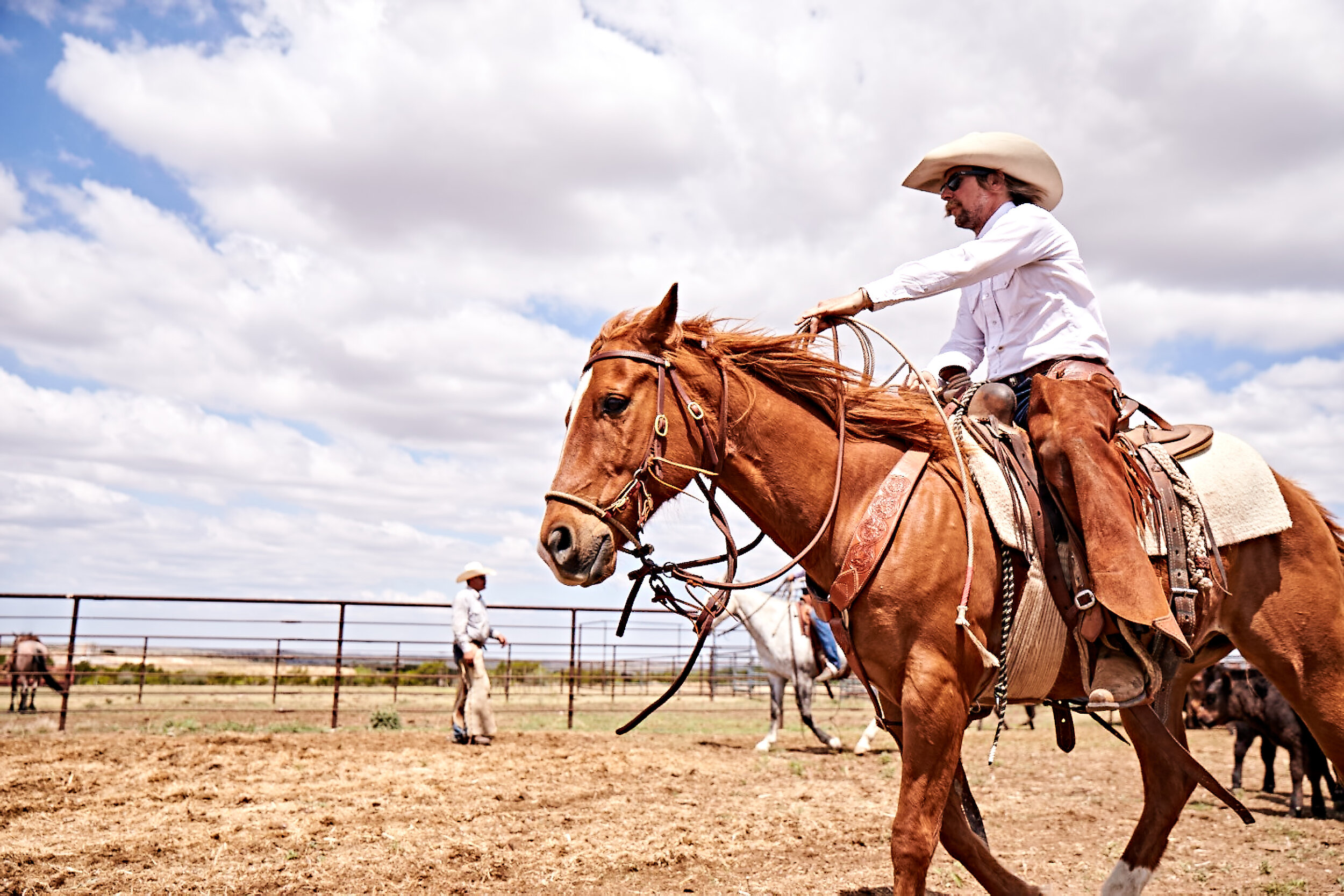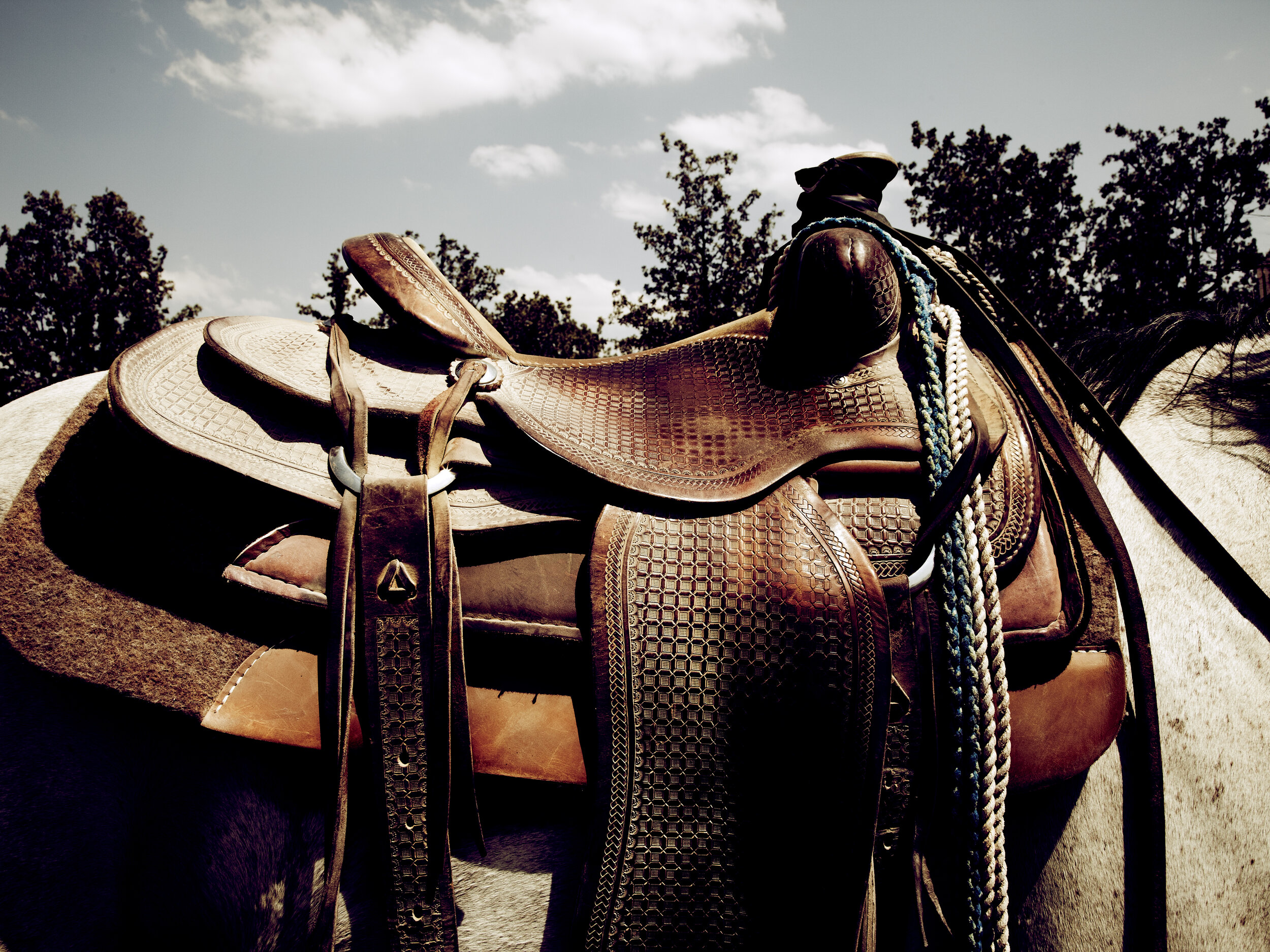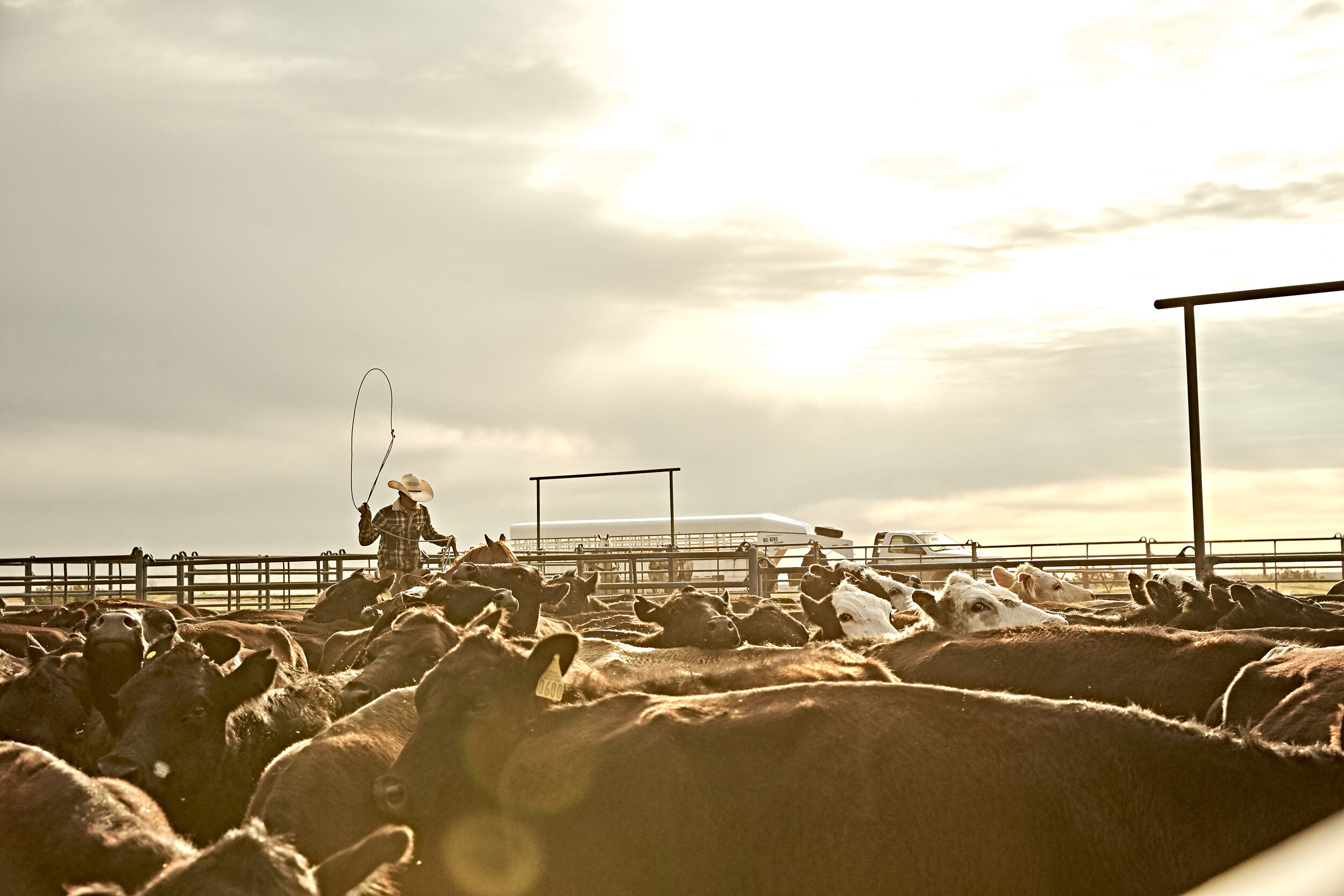With a sharp perspective, Scott Slusher’s lens captures the American West at work.
Written by Constance Dunn
A Scott Slusher image is distinctive, capturing everyday people in action, typically on farms, ranches or other rough and tumble American worksites. The focus is on the land and the individual. Subjects are typically alone and photographed without interference, yielding unposed, natural images that are quietly intense and poetic. “I try to capture people like they don’t even know I’m there,” the Dallas-based photographer and director says of his approach.
There’s a crispness to the image too, the result of Slusher’s technique, which puts particulars in fine focus, down to the weave of a subject’s t-shirt or the detail in a patch of dirt on a cowboy’s chaps. “I’ll come in and get tight on details of boots and hats and jeans and shirts,” he says, “and different parts of what a cowboy wears.” These visual signatures attract commercial clients whose brands relate to life in rural America and the West, including YETI and American Hat Company.
It’s a native interest in personal style that Slusher, who has a degree in fashion design, credits with his tendency to zoom in on what a subject is wearing, along with his habit of quickly spotting an untucked shirt or ill-fitting garment on a shoot. Luckily, there’s someone for that on set, and that’s often stylist Lisa Slusher, his wife of 15 years. The lensman’s own style is singular; classic and comfortable are keywords that orient his Western-tinged ensembles, often classic Levi’s and a tucked-in shirt paired with cowboy boots or Vans. “I don’t always have a cowboy hat on,” says Slusher, but it’s likely to see him with a kerchief fastened around his neck.
“I’ve always wanted to be a cowboy,” he confesses. This is more than abstract yearning—it’s a way of life Slusher has been connected to since childhood. Born in Tulsa, both of his grandfathers worked the land: one as a cowboy with a ranch; the other a farmer with a Kansas farm where Slusher spent much time while growing up. While on the farm, he says, “I learned a lot about the way things have always been done.” Things in this case refers to the American West; its rituals and the best practices that are still alive today, just as they were in the Old West. “They are still slowing it down,” says Slusher of life in the modern West. “Taking in the sunrise and the sunset. Being around family. John Wayne is a perfect example of this,” Slusher says, “in the way he was as a human being, but also in the roles he [played] in a lot of his movies.” His favorite movie of Duke’s happens to be The Cowboys (1971). In it, Slusher says of Wayne, “He’s a straight-up cowboy, and he’s also a teacher.”
In Slusher’s personal style, and the places and people of the American West that he documents, there’s an unmistakable signature of the past. It’s rendered vibrant and modern in his hands, and represents a vision he’s keen to share with others. “I find the old-school mentality of almost everything I shoot is a lot more enjoyable to me,” he remarks. It’s not just an aesthetic, but a way of being that’s native to Slusher and his personality. He also brings it to his work, which takes him to ranches often for days at a time, with great results. While there, showing respect, staying out of the way and letting his subjects’ natural personalities unfurl for the camera are vital to getting the best shots. “I blend in and help out,” he describes. Finally, there’s staying in flow with that singular beat of the West, which is native to this son: “I try to slow it down,” Slusher says of his process. “I take time with the subject and the moment, and think, ‘Let’s take a moment and find out what’s the best scenario that we can do right here.’”
Photos courtesy of Scott Slusher
